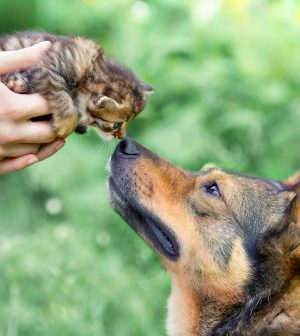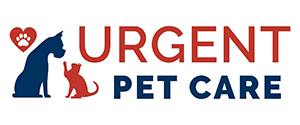- Do you subscribe to Dharma Dog Training’s Newsletter? You should.
- A Unique Campaign from The Humane Society of the United States
- Rabid bats in Omaha- Stay safe, prepared with these tips
- Springtime Activities in Omaha
- Mill Dog Monthly from Bailing Out Benji
- World Spay Day, Legislative Alert in Nebraska
- Attend the Nebraska Rescue Council’s monthly meeting this Saturday
- Five Hard-to-Ignore Reasons to Adopt!
- Paws in Pink to Benefit Breast Cancer Foundation
- VCA, Inc. Acquires MidWest Vet Specialists from Kansas State University
The Science Behind Why the Bond Between a Pet and Their Owner is Not Unlike a Parent and Child

Are you a pet parent who dresses your furry friend warmly when the weather gets cold or holds your dog or cat like a baby, giving them soothing reassurance when they come to you for it?
Numerous studies show that we think of our pets like our children, and there is a connection between how our brains respond to our fur kids and our human babies. We provide our children with food, toys, a routine, love, and affection; many pet parents do the same with their animals.
Pet owners commonly nurture their dogs or cats and bond with them physically and emotionally. In this article, you will learn some basic ways a pet and their owner have a relationship similar to a parent and child, as well as some science-backed research to explain the attachment.
Why the Bond with Our Pets is Similar to Parent and Child
A lot of science-backed research exists that demonstrates the powerful bond between an owner and their pet. Pets and their human parents also have fundamental similarities with mother or father and child. The following includes some ways you may have a maternal or paternal bond with your pet:
We Attend to Our Pets Basic Needs
Humans lovingly give their children what they need to survive. The same is true for their pets. Pets’ needs are not unlike a baby or a toddler. There are several fundamental needs we provide our pets that correlate with how we care for our children:
- Toys
- Food
- Shelter
- Exercise
- Medical care
- Protection from harm
Our pets are our four-legged family members, and we treat them with kindness and a gentle hand. Our pets look up to us and know we are always there to care for them. They depend on us and feel safe with us. It is a relationship built on trust and reciprocal fondness.
The “Secure Base Effect”
Researchgate.net explains that the “secure base effect” refers to how a child uses their parent or caregiver as a secure base between themselves and the environment. Dogs also make this association with humans. The study involved dogs’ reactions in three conditions: absent owner, silent owner, and encouraging owner. After playing with a food puzzle, the pups were given a food reward.
Dogs were tested in different conditions where the researcher varied the owner’s presence and absence. The dogs responded by working harder when the owner was present, meaning that when their owner was there, it encouraged them. The study confirmed that dogs were more interested in rewards when they pleased their human parent.
Pets Look up to Their Owners
Dogs and cats look up to their owners like a child sees their parent as an authority or source of guidance. Think of the way your dog looks up at you with love and admiration in their eyes. You could also compare it to how a cat “slow blinks” at you to show you their appreciation. They are letting you know that they see you as their leader and think you are awesome.
Our Brains Respond to Our Pets and Children Similarly
According to The Harvard Gazette, pets can activate specific brain structures like emotion, reward, and social interaction. Research showed that women who looked at their child or dog responded similarly. Different chemicals in our brains react to our pets in some of the ways we respond to our children:
Oxytocin- Serotonin
- Dopamine
The above are the chemicals in the brain that increase when we interact with our pets. When we touch or experience affection with our pet, the reward parts of our brain light up. These chemicals also help us feel happier and more positive, similar to how a parent feels with their child.
We Teach Our Pets
We teach our pets important lessons that they can recall and understand. Teaching your dog commands is like teaching your child to obey you. They listen to you because your approval and praise mean the world to them. Even cats, who are naturally more independent, can learn from their owners. We can teach our dogs and cats to respect us and follow our lead.
Emotional Bonding
Emotional bonding occurs when you cuddle with your furry feline or sleep in bed with your canine companion. When you play fetch with your dog or play with your cat, the two of you emotionally bond because it helps develop teamwork and a healthy relationship. The two of you count on each other.
Conclusion
Pets are our little children with fur. We shelter them, nurture them, and take care of them. They look at us as their loving protector. Guiding and teaching them helps them to thrive. Your dog or cat increases the part of your brain that governs emotions and empathy, which brings you closer to them. Your bond with your pet is a precious gift that lasts a lifetime.
Latest News
-
How Rescue Pets are Good for Your Health
Marie Miguel of BetterHelp.com as submitted this useful post we...
- Posted 7 hours ago
- 0
-
3 Tips for Pet Owners on Training Rescue Dogs
Owning a rescue dog can take some work compared to...
- Posted 4 weeks ago
- 0
-
10 Tips To Remember When Bringing Your Rescue Dog Home
Bringing your new rescue dog home for the first time...
- Posted 4 weeks ago
- 0
-
Choosing the Right Pet for Your Lifestyle
Are you thinking about getting a pet but unsure what...
- Posted 1 month ago
- 0
-
How to Make Your Rescue Pet as Comfortable as Possible
Did you bring home a new pet from a shelter...
- Posted 2 months ago
- 0
-
How Having A Pet Can Change Your Life
Having a pet can open your heart in ways that...
- Posted 7 months ago
- 0
-
How To Improve The Life Of Your Senior Pet
Do you have an elderly fur baby and want to...
- Posted 8 months ago
- 0


















You must be logged in to post a comment Login